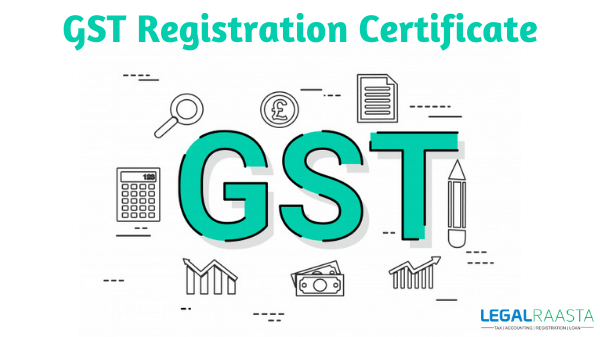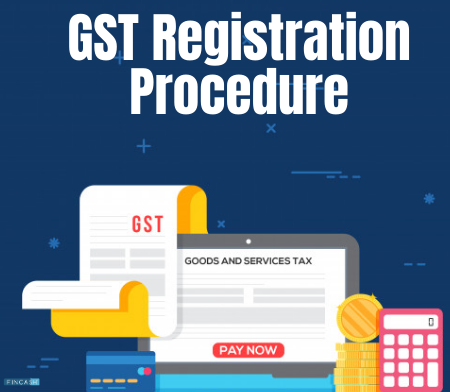From Beginning To End: The Ultimate Roadmap to GST Registration for Services Seeking Financial Stability
Browsing the complexities of Item and Services Tax Obligation (GST) registration is a crucial step for companies making every effort for economic security. Breaking down the roadmap into manageable actions can improve the enrollment journey for services looking to enhance their financial standing.
Recognizing GST Essentials
Looking into the fundamental principles of Goods and Solutions Tax (GST) is crucial for getting an extensive understanding of its implications on organizations and the economic situation. GST is a value-added tax obligation imposed on most products and solutions for domestic consumption. It has actually replaced multiple indirect taxes that existed in the pre-GST age, simplifying the tax obligation structure and enhancing ease of doing organization in India. Under the GST system, both items and solutions are tired at a specific rate, which is identified based on their classification. Services are called for to sign up for GST if their annual turn over goes beyond the threshold restriction established by the government. Input Tax Credit (ITC) is a substantial feature of GST, allowing companies to declare credit report for taxes paid on inputs, minimizing the overall tax obligation problem. Comprehending the basics of GST is essential for companies to follow tax laws, handle their financial resources effectively, and add to the nation's financial growth by participating in a clear tax system.
Qualification Criteria for Registration
To sign up for GST, organizations need to satisfy particular qualification standards developed by the government. The primary eligibility requirement is that any type of organization entailed in the supply of goods or services with a yearly aggregate turnover over the threshold limit established by the authorities need to sign up for GST. As of the current laws, the threshold limit for GST registration is a yearly aggregate turn over of 40 lakhs for organizations running within a state, with the exception of special category states where the limit is 20 lakhs. Additionally, certain organizations are required to register for GST irrespective of their turnover, such as interstate providers, informal taxed individuals, and organizations accountable to pay tax under the reverse fee system. It is important for companies to completely analyze their turnover and deal kinds to determine their GST registration obligations precisely. Failure to register for GST when eligible can cause penalties and lawful effects, making it necessary for services to stick to the specified qualification standards.
Files Needed for Registration
Having actually met the qualification standards for GST registration, businesses have to now ensure they have the requisite documents in position to proceed with the enrollment procedure successfully. The files needed for GST enrollment normally consist of evidence of organization constitution, such as collaboration action, enrollment certification, or unification certificate for various kinds of services. In addition, businesses require to supply records developing the primary workplace, such as a rental contract or electricity expense. Frying pan card of business, along with the identity and address evidence of promoters/partners/directors, are necessary for confirmation functions. Checking account declarations, in addition to canceled cheques or a copy of the bank passbook, are needed to verify the economic details supplied throughout registration. Moreover, companies should have electronic signatures prepared for the licensed notary. Making certain all these papers are arranged and readily offered will certainly speed up the GST registration process, allowing companies to adhere to tax laws effortlessly.
Step-by-Step Registration Refine
Commencing the GST enrollment procedure includes a series of organized actions to make certain a compliant and seamless enrollment for companies. The very first informative post step is to check out the GST site and fill up out the enrollment form with exact information of the company entity. Following this, the applicant obtains a Momentary Recommendation Number (TRN) which is used to resume the application procedure if it's not finished in one go.
Next, all required records as per the checklist provided by the GST portal requirement view publisher site to be submitted. These papers generally include proof of service registration, identification and address proofs of marketers, economic statements, and service entity's frying pan card.

Post-Registration Conformity Guidelines

Conclusion
In verdict, companies looking for economic stability should recognize the essentials of GST, satisfy eligibility standards, gather necessary papers, follow the detailed enrollment process, and follow post-registration guidelines - Best GST registration services in Singapore. By adhering to these steps, companies can make certain conformity with see here now tax laws and maintain financial security in the long run
Additionally, particular businesses are required to sign up for GST irrespective of their turn over, such as interstate providers, laid-back taxable persons, and companies accountable to pay tax under the reverse charge system.Having actually fulfilled the qualification requirements for GST enrollment, organizations need to now guarantee they have the requisite papers in location to proceed with the enrollment process efficiently. The documents required for GST registration typically consist of evidence of service constitution, such as collaboration action, registration certificate, or consolidation certification for different kinds of organizations. In addition, services require to offer papers developing the primary location of business, such as a rental agreement or electricity bill.Commencing the GST enrollment procedure entails a collection of structured actions to make sure a seamless and compliant registration for businesses.